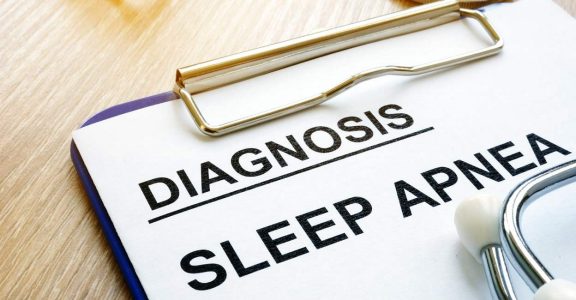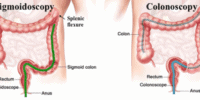How To Improve Sleep Quality With Sleep Apnea?

Sleep apnea is a common sleep disorder characterized by interrupted breathing during sleep, leading to poor sleep quality and potentially serious health consequences. Individuals with sleep apnea often experience excessive daytime sleepiness, loud snoring, and frequent waking during the night.
Improving sleep quality in individuals with sleep apnea is essential for their overall well-being and quality of life. This article aims to provide evidence-based strategies to enhance sleep quality in individuals with sleep apnea. It emphasizes the importance of consulting with healthcare professionals, maintaining a consistent sleep schedule, creating a comfortable sleep environment, practicing relaxation techniques before bedtime, avoiding stimulants and heavy meals before bed, incorporating regular exercise into the routine, and seeking support from others.
By implementing these strategies, individuals with sleep apnea can improve their sleep quality, reduce symptoms, and enhance their overall health and well-being.
Key Takeaways
- Consulting with a healthcare professional specializing in respiratory disorders is crucial for accurate diagnosis and personalized treatment plans.
- Maintaining a consistent sleep schedule helps regulate the body’s internal clock and improves sleep quality for individuals with sleep apnea.
- Creating a comfortable sleep environment involves eliminating factors that may disrupt sleep, such as excessive noise or light.
- Engaging in discussions about treatment options and strategies helps explore new possibilities.
Understand Sleep Apnea and its Symptoms
Sleep apnea is a sleep disorder characterized by pauses in breathing or shallow breaths during sleep, often resulting in restlessness and excessive daytime sleepiness. It is a prevalent condition, affecting millions of individuals worldwide.
The two main types of sleep apnea are obstructive sleep apnea (OSA) and central sleep apnea (CSA). OSA occurs when the airway becomes partially or completely blocked during sleep, leading to interrupted breathing. CSA, on the other hand, is caused by the brain’s failure to send the appropriate signals to the muscles that control breathing.
Common symptoms of sleep apnea include loud snoring, gasping for air during sleep, morning headaches, and difficulty concentrating. Understanding these symptoms is crucial for early detection and prompt treatment, which can significantly improve sleep quality and overall well-being.
Consult with a Healthcare Professional
Consultation with a healthcare professional specializing in respiratory disorders allows individuals suffering from obstructive sleep apnea to receive expert guidance and personalized treatment plans to alleviate their symptoms and optimize their restorative sleep.
Seeking professional advice is crucial as healthcare professionals can accurately diagnose sleep apnea, determine its severity, and identify any underlying causes. They may recommend a variety of treatment options tailored to the individual’s specific needs, such as continuous positive airway pressure (CPAP) therapy, oral appliances, lifestyle modifications, or surgical interventions.
Additionally, healthcare professionals can provide education on sleep hygiene practices, including maintaining a consistent sleep schedule, creating a conducive sleep environment, and avoiding substances that may disrupt sleep.
Regular follow-up appointments with healthcare professionals allow for ongoing monitoring and adjustments to the treatment plan, ensuring optimal outcomes for individuals with sleep apnea.
Maintain a Consistent Sleep Schedule
Maintaining a consistent sleep schedule can significantly contribute to the overall well-being and vitality of individuals with obstructive sleep apnea, providing them with a sense of stability and routine that promotes restorative rest and enhances their overall quality of life. By adhering to a regular sleep routine, individuals with sleep apnea can improve their sleep quality and reduce the frequency of apnea episodes.
A consistent sleep schedule helps regulate the body’s internal clock, also known as the circadian rhythm. This internal clock controls the sleep-wake cycle and ensures that individuals with sleep apnea have a more predictable pattern of sleep and wakefulness. By going to bed and waking up at the same time every day, individuals can train their bodies to fall asleep and wake up more easily, leading to a more restful sleep.
To illustrate the importance of maintaining a consistent sleep schedule, the following table highlights the potential benefits:
| Benefits of Maintaining a Consistent Sleep Schedule |
|---|
| Improved sleep quality |
| Enhanced daytime alertness |
| Reduced daytime fatigue |
Establishing and maintaining a consistent sleep schedule can be an effective strategy for improving sleep quality and managing sleep apnea. By prioritizing regular sleep patterns, individuals can experience better overall well-being and enjoy a more fulfilling life.
Create a Comfortable Sleep Environment
Creating a conducive sleep environment plays a crucial role in optimizing restful nights and promoting overall well-being for individuals with obstructive sleep apnea.
It is important to eliminate any factors that may disrupt sleep, such as excessive noise or light. Using earplugs or a white noise machine can help mask external sounds, while blackout curtains or an eye mask can block out unwanted light.
Additionally, maintaining a cool and comfortable room temperature can enhance sleep quality. Investing in a supportive mattress and pillows that provide adequate neck and back support is also essential.
Furthermore, reducing electronic device usage before bedtime and keeping the bedroom solely for sleep and relaxation can help create a sleep-friendly environment.
Overall, creating a comfortable sleep environment can significantly improve sleep quality and alleviate symptoms of sleep apnea.
Practice Relaxation Techniques before Bedtime
Engaging in relaxation techniques prior to bedtime can contribute to a more tranquil state of mind, facilitating a smoother transition into a restful sleep for individuals with obstructive sleep apnea.
Relaxation techniques, such as deep breathing exercises, progressive muscle relaxation, and guided imagery, can help reduce stress and anxiety levels, which are often associated with sleep apnea.
Deep breathing exercises involve taking slow, deep breaths to promote relaxation and improve oxygen flow.
Progressive muscle relaxation entails systematically tensing and then relaxing different muscle groups to release tension and promote a sense of calm.
Guided imagery involves visualizing peaceful and calming scenes to induce relaxation.
Incorporating these techniques into a bedtime routine can help individuals with sleep apnea relax both physically and mentally, promoting better sleep quality and overall well-being.
Avoid Stimulants and Heavy Meals before Bed
To optimize the chances of falling asleep easily and waking up refreshed, it is advisable to refrain from consuming stimulants and heavy meals in the evening. These substances can disrupt sleep patterns and exacerbate the symptoms of sleep apnea. Here are four things to avoid before bedtime:
- Stimulants: Avoid consuming caffeine, nicotine, and alcohol, as they can interfere with your ability to fall asleep and stay asleep.
- Heavy Meals: Eating a large and rich meal before bed puts strain on the digestive system, leading to discomfort and potential reflux, which can disrupt sleep.
- Spicy or Acidic Foods: These can cause heartburn and discomfort, making it difficult to sleep comfortably.
- Fluid Intake: Limit your intake of fluids, especially close to bedtime, to prevent frequent bathroom visits that can interrupt your sleep.
By avoiding stimulants and heavy meals before bed, you can improve your sleep quality and better manage the symptoms of sleep apnea.
Incorporate Regular Exercise into Your Routine
Incorporating regular exercise into one’s daily routine has been found to have positive effects on overall sleep patterns and respiratory health. Engaging in physical activity has been shown to improve sleep quality and alleviate symptoms in individuals with sleep apnea. Exercise helps to strengthen the muscles involved in breathing, reducing the risk of airway collapse during sleep.
Additionally, regular exercise promotes weight loss and helps to maintain a healthy body mass index (BMI), which is crucial in managing sleep apnea. It is recommended to engage in moderate-intensity aerobic exercise, such as brisk walking or cycling, for at least 150 minutes per week.
However, individuals with sleep apnea should consult with their healthcare provider before starting an exercise program to ensure it is safe and appropriate for their specific condition.
Stay Positive and Seek Support from Others
Maintaining a positive mindset and seeking support from others can create a sense of camaraderie and resilience in individuals managing their sleep disorder. Dealing with sleep apnea can be challenging, and having a positive outlook can be beneficial in coping with the condition.
Seeking support from friends, family, or support groups can provide a safe space for individuals to share their experiences, concerns, and strategies for managing sleep apnea. It can also offer emotional support and encouragement, which can help alleviate feelings of isolation and frustration. Additionally, attending support group meetings or engaging in online forums can provide a platform for individuals to learn from others’ experiences and gain valuable insights into managing their sleep disorder effectively.
- Sharing stories and experiences with others who have sleep apnea can foster a sense of empathy and understanding.
- Receiving encouragement and positive feedback from others can boost motivation and self-confidence.
- Connecting with individuals who have successfully managed their sleep apnea can inspire hope and provide practical tips.
- Engaging in discussions about different treatment options and strategies can help individuals explore new possibilities.
- Creating a support network can provide a sense of belonging and reduce feelings of isolation.
Frequently Asked Questions
What are the common causes of sleep apnea?
The common causes of sleep apnea include obesity, large neck circumference, aging, gender (more common in males), family history, nasal congestion, smoking, alcohol and sedative use, and certain medical conditions such as hypertension and diabetes.
How does sleep apnea affect overall health?
Sleep apnea can have significant effects on overall health. It is associated with increased risk of cardiovascular disease, hypertension, stroke, and diabetes. It can also lead to daytime fatigue, cognitive impairment, and decreased quality of life.
Can sleep apnea be treated without using a CPAP machine?
Yes, sleep apnea can be treated without using a CPAP machine. Alternative treatments include oral appliances, positional therapy, weight loss, surgery, and lifestyle changes. However, the effectiveness of these treatments may vary depending on the severity of the condition.
Are there any alternative therapies or remedies for sleep apnea?
Alternative therapies for sleep apnea include positional therapy, oral appliances, and weight loss. Other remedies include nasal dilators, breathing exercises, and lifestyle changes such as avoiding alcohol and smoking. However, these treatments may not be as effective as using a CPAP machine.
Can sleep apnea be cured completely or is it a lifelong condition?
Sleep apnea is a chronic condition that cannot be completely cured. However, it can be effectively managed through various treatments such as continuous positive airway pressure (CPAP) therapy, lifestyle changes, and surgical interventions to improve sleep quality and reduce symptoms.











